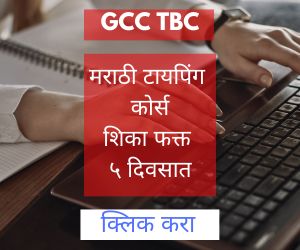In this article, we discuss the Lucknow pact 1916 and its importance and main points.
Congress session of 1916 was held in Lucknow. This year the Congress and the Muslim League had jointly signed an agreement. This agreement is called Lucknow Pact.
Ambika Charan Muzumdar was the president of the Lucknow session of 1916. Muhammad Ali Jinnah was the president of the Muslim League.
Lord Curzon partitioned Bengal in 1905. Partition was done in such a way that the western part became a Hindu majority and the eastern part became a Muslim majority.
Protests started in Bengal as soon as the partition was heard. Swadeshi and boycott movements started against the partition of Bengal. But the participation of Muslim people in this movement is less.
Hindus were angry with the partition of Bengal but the Muslim people were welcoming the partition.
The Muslim people were happy with the partition because Hindus were in the majority in undivided Bengal. And now in the divided Bengal, the Muslim people had become in the majority.
On one hand, the Britishers were working for the welfare of the Muslim people by giving them reservations, and on the other hand, Congress was protesting.
So therefore the Muslim League was formed in 1906 to protect the rights of the Muslim people.
When the Muslim League was formed, his thinking was that even if we have to support the Britishers, our rights should be protected.
But after this, the British Government took some such decisions that the Muslim League lost its faith in the Britishers.
These Acts were the Government of India Act 1909 and the repeal of the Partition of Bengal. And after that, the First World War also started.
In 1909, the British government was about to implement its new Act, the Government of India Act 1909, when the Muslim League had kept some demands in front of them.
The first demand was that in some Muslim majority areas, they should be given a separate electorate.
The second demand was that there should be 2 Indians in the executive council of the Viceroy, one should be Muslim and the other should be of another religion.
When Minto and Morley reform applied in 1909, the British gave them a separate electorate but in the executive council of the Viceroy, only one Indian took that to a Hindu.
The second event happened that the British annulled the partition of Bengal in 1911.
The First World War started on 28 July 1914. The Ottoman Empire was also participating in this world war.
The Sultan of the Ottoman Empire was called Kalif and was considered by many Muslims living all over the world. This world war was happening between two powers i.e. Allied Powers and Central Powers.
Allied powers means Britain, France, Japan, Russia and Italy. Central powers means Germany, Austria-Hungary, Bulgaria and Ottoman Empire.
When the Ottoman Empire was fighting against Britain, the Muslim people of India also stopped supporting the Britishers.
Then the Muslim League joined with the Indian National Congress and both of them made a commitment that together they would pressurize the Britishers to get the Demands done by pressurizing them.
Mohammad Ali Jinnah played the biggest role in bringing these two parties together.
Provisions of Lucknow Pact 1916:
In 1916, a joint session of Congress and the Muslim League was held in Lucknow.
The first issue was about the Dominion Status, both the parties made a commitment that we should try to create self-government.
In the second issue, it was decided that how many members of both the parties should be in the Central Legislature.
Total 60 members were decided in Minto Morley Reform. Both the parties together decided that the total number of members should be 150, in which the number of Indians should be 75.
In these 75 members, that third member i.e. 25 members should be Muslim. In the third issue, it was decided that those 25 members should get a separate electorate.
The fourth agreement was related to Communal Veta. If a bill is brought in the Central Legislature, which has an effect on any community, then the approval of three-fourths of the members will be necessary. There was talk of giving veto power to that particular community.
The fifth agreement was related to the separation of the Judiciary and Executive. Here there was talk of following the principle of separation of powers. The work of the executive would be to make and maintain the laws and the work of the judiciary would be to give justice to the public on the basis of those laws.
All the colonies of the Britishers had a Secretary of State, who was the cabinet minister of Britain. Its salary was given from the fund of India, so both the parties believed that its salary should not be given from the Indian fund.
Both the parties had also committed that the term of the Legislative Council should be increased from 3 years to 5 years.
If you like this article about the Lucknow pact 1916, consider sharing this article with friends.








